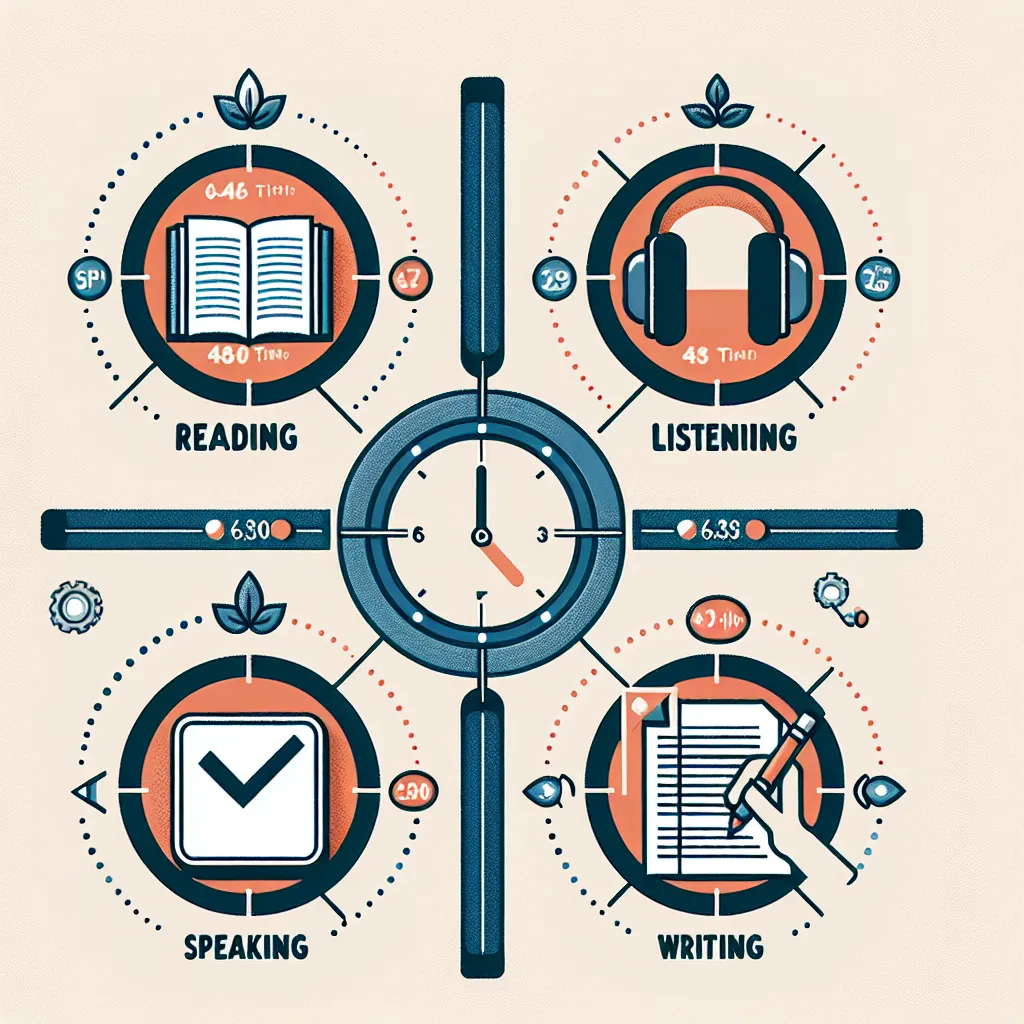Are you preparing for the TOEFL exam and wondering how much time you should dedicate to your studies each day? As an experienced TOEFL instructor and content creator for LearnEnglish.NET, I’m here to guide you through this crucial aspect of your TOEFL preparation journey. Let’s explore the ideal study duration and strategies to maximize your learning efficiency.
Understanding the Importance of Daily TOEFL Study
Before we dive into the specifics of how many hours you should study for TOEFL each day, it’s essential to understand why consistent daily practice is crucial for your success.
The Power of Consistency in TOEFL Preparation
Consistency is key when it comes to mastering any skill, and TOEFL preparation is no exception. Regular, focused study sessions help you:
- Retain information more effectively
- Build confidence in your language abilities
- Develop test-taking strategies over time
- Reduce pre-exam anxiety through familiarity with the test format
 TOEFL daily study schedule
TOEFL daily study schedule
Determining Your Ideal Daily Study Hours for TOEFL
The number of hours you should dedicate to TOEFL study each day depends on several factors:
- Your current English proficiency level
- The time remaining until your test date
- Your target TOEFL score
- Your personal schedule and commitments
General Guidelines for Daily TOEFL Study
While individual needs may vary, here are some general recommendations for daily TOEFL study:
- Beginners (TOEFL score below 60): 3-4 hours per day
- Intermediate learners (TOEFL score 60-80): 2-3 hours per day
- Advanced learners (TOEFL score above 80): 1-2 hours per day
Remember, these are guidelines, and you should adjust your study time based on your personal progress and needs.
Structuring Your Daily TOEFL Study Sessions
To make the most of your study time, it’s crucial to structure your sessions effectively. Here’s a sample breakdown for a 3-hour study session:
- Reading practice (45 minutes): Focus on academic texts and practice comprehension skills.
- Listening practice (45 minutes): Work on understanding lectures and conversations.
- Speaking practice (30 minutes): Practice responding to speaking tasks and record yourself.
- Writing practice (45 minutes): Develop your essay-writing skills for both integrated and independent tasks.
- Vocabulary and grammar review (15 minutes): Reinforce language fundamentals.
Tips for Effective Daily TOEFL Study
- Set specific goals: Define what you want to achieve in each study session.
- Use high-quality materials: Invest in reputable TOEFL preparation books and online resources. [internal_links]
- Take regular breaks: Incorporate short breaks to maintain focus and avoid burnout.
- Vary your study methods: Mix up your activities to keep your mind engaged and cover all aspects of the test.
- Track your progress: Keep a log of your study hours and practice test scores to monitor improvement.
Balancing TOEFL Study with Other Commitments
It’s important to find a balance between TOEFL preparation and your other responsibilities. Here are some strategies to help you maintain a consistent study schedule:
- Create a study calendar: Plan your TOEFL study sessions in advance, taking into account work, school, or family commitments.
- Use time management techniques: Try methods like the Pomodoro Technique to maximize focus during study sessions.
- Leverage “dead time”: Use commute time or lunch breaks for quick review sessions or vocabulary practice.
- Communicate with family and friends: Let your support network know about your study goals so they can encourage and accommodate your schedule.
Adjusting Your Study Plan as Test Day Approaches
As your TOEFL test date nears, you may need to adjust your daily study hours. Here’s a general timeline to consider:
- 3-6 months before the test: Follow the recommended daily study hours based on your level.
- 1-2 months before the test: Increase your study time by 30-60 minutes per day.
- 2 weeks before the test: Focus on full-length practice tests and targeted review of weak areas.
- The day before the test: Limit study to 1-2 hours of light review and relaxation techniques.
Common Mistakes to Avoid in Daily TOEFL Study
- Overextending yourself: Studying for too many hours can lead to burnout and decreased productivity.
- Neglecting certain sections: Ensure you’re giving equal attention to all four TOEFL sections.
- Passive learning: Engage actively with the material through practice and application, not just reading or listening.
- Ignoring real-life English practice: Supplement your TOEFL-specific study with authentic English content like news articles, podcasts, and academic lectures.
Next Steps: Putting Your Daily TOEFL Study Plan into Action
Now that you have a better understanding of how many hours you should study for TOEFL each day, it’s time to create your personalized study plan. Here are some steps to get started:
- Assess your current English level and determine your target TOEFL score.
- Calculate the time remaining until your test date.
- Create a weekly schedule, allocating specific times for daily TOEFL study.
- Gather high-quality study materials and resources.
- Start implementing your study plan, and be prepared to adjust as needed based on your progress.
Remember, consistency and quality of study are more important than sheer quantity. By following these guidelines and maintaining a disciplined approach to your daily TOEFL preparation, you’ll be well on your way to achieving your desired score. Good luck with your TOEFL journey!




